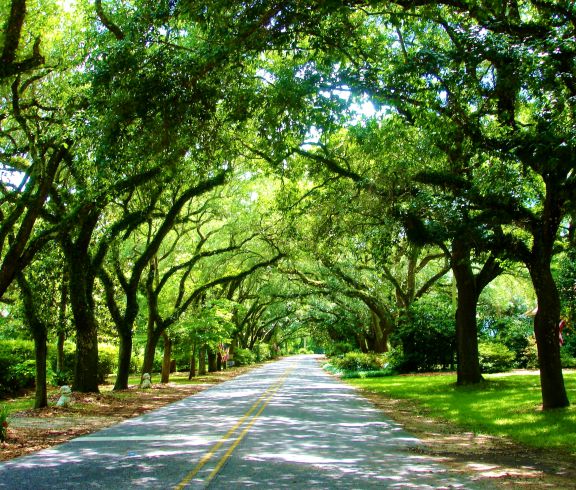
“There comes a time when one must take a position that is neither safe, nor politic, nor popular, but he must take it because conscience tells him it is right.”
—Dr. Martin Luther King, Jr.
Photo: Deborah Fagan Carpenter
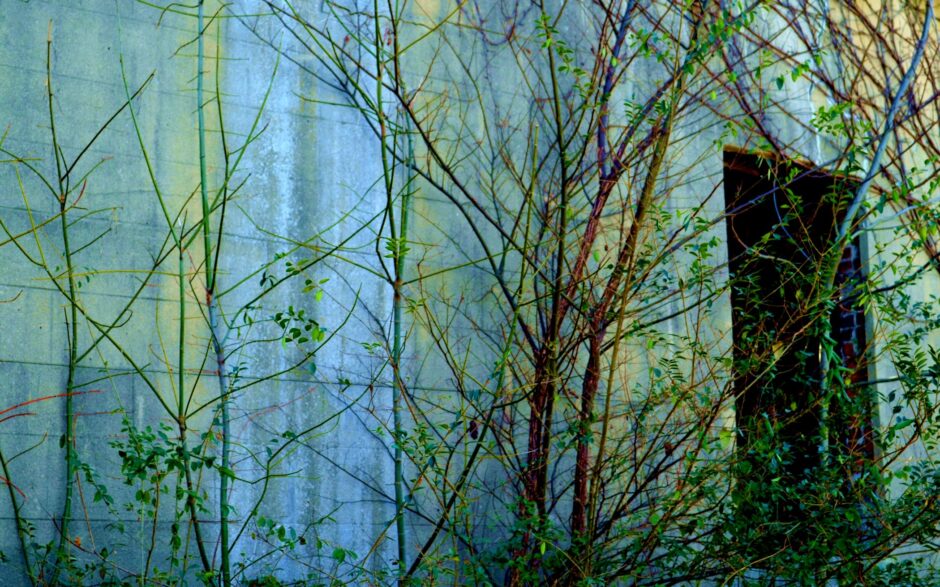

“There comes a time when one must take a position that is neither safe, nor politic, nor popular, but he must take it because conscience tells him it is right.”
—Dr. Martin Luther King, Jr.
Photo: Deborah Fagan Carpenter
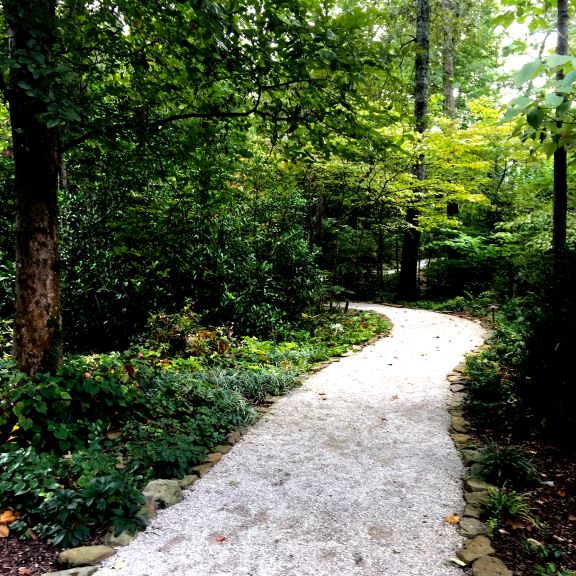
“The truth does not change according to our ability to stomach it.”
—Flannery O’Conner
Photo: Deborah Fagan Carpenteer

“Certain conditions continue to exist in our society which must be condemned as vigorously as we condemn riots, but in the final analysis, a riot is the language of the unheard. And what is it that America has failed to hear?”
—Dr. Martin Luther King, Jr.
Photo: Deborah Fagan Carpenter
Sheltering in the Garden
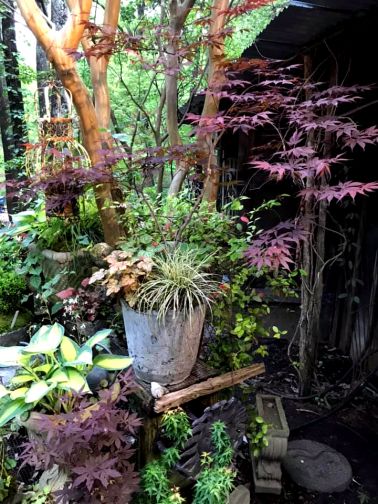
They live in a garden paradise, so sheltering-in-place has been business as usual. For over 35 years, the natural wonderland that Diane Meucci and Wolfgang Marquardt cultivated from untamed woods has been the home and home base for their successful landscaping, mail-order, and retail plant business. Diane and Wolfgang describe their lush innovation near Eads, Tennessee, Gardens Oy Vey, as a “nursery within a garden.”
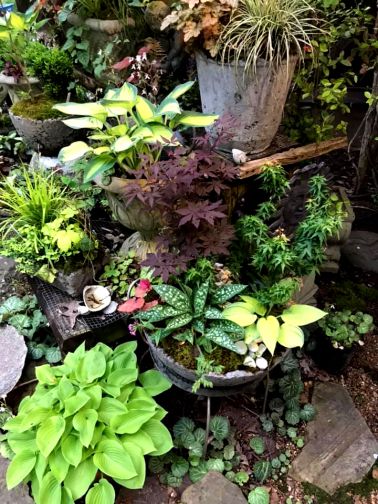
While the couple has interrupted their business routine very little, they decided at the beginning of the Covid-19 dilemma to close the nursery to the public for the pandemic’s duration. Diane, however, continues designing inspired gardens and landscapes for old and new clients. Wolfgang is still creating imaginative table gardens that he sells at farmers’ markets and garden venues regionally. He also manages a substantial online nursery, mailing plants and plant materials via UPS, USPS, and Fed-EX at no charge to 32 states.
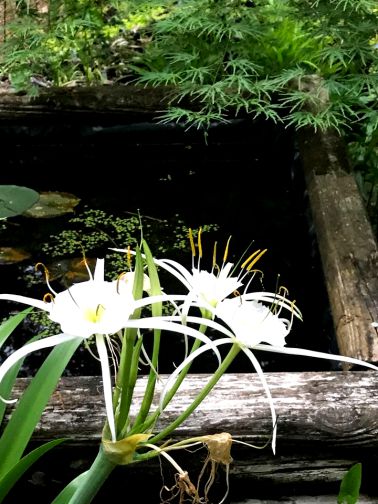
Gardens Oy Vey’s plant inventory is a shade-lovers’ heaven. There’s a diverse mixture of hostas, ferns, and ground groundcovers, and the most unusual varieties of hydrangeas in the area. The nursery is laid out beautifully in vignettes that suggest ways to arrange all the various offerings. When they’re eventually able to open again for several hours on Friday and Saturday, visitors can enjoy strolling through the garden to make their plant selections.
In addition to hydrangeas, the garden offers a large selection of azaleas, camellias, viburnum, camellias, and evergreens. For trees, there are small trees such as Japanese maples, and multiple kinds of fruit trees. Also, there’s bamboo and grasses, drought-tolerant plants, and climbers and vines. All of the stock is available for buying online and shipping, except Wolfgang’s smart table gardens.
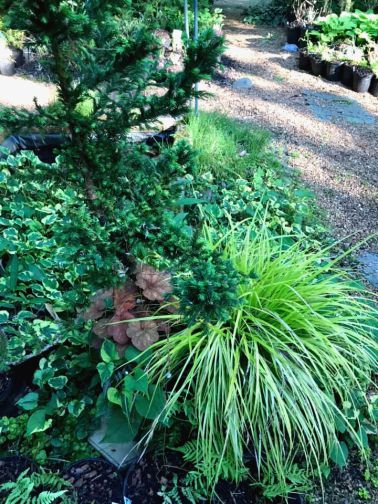
An article from 2013 goes into more detail about Gardens Oy Vey, a local treasure. Please take the time to read it and be aware that there’s extraordinary garden design help and more from Gardens Oy Vey.
http://porchscene.com/2013/08/06/oy-vey-paradise-in-a-gully-by-deborah-fagan-carpenter/
Gardens Oy Vey web site: www.gardensoyvey.com
Deborah Fagan Carpenter, May 2020
Images: Wolfgang Marquardt

When everything is at risk, good judgment, not haste, makes the difference between life and death. Panic is the enemy.
—Greg Iles
Photo: Deborah Fagan Carpenter

“You never know what’s in a person’s heart until they’re tested, do you?”
― Fannie Flagg,
Fried Green Tomatoes at the Whistle Stop Cafe
Photo: Deborah Fagan Carpenter
Winds of Change
by Gary Wright
“(H)ow many times can a man turn his head
And pretend that he just doesn’t see
The answer, my friend, is blowing in the wind
The answer is blowing in the wind.”
—Bob Dylan

Change is wrought not through peaceful, graceful serenity or amid the quietness of calm repose. Rather, change is thrust upon us through the shrieks and screams of birthing pain; through volcanic eruptions and the spewing of white-hot magma, and usually, against all the efforts of nature to resist and to maintain status quo. The natural order does not welcome change. The natural world likes serenity, calm, and the ho-hum of sameness. It is only through insidious, subtle, minute difference and microscopic modification, usually at the sub-atomic level, that change occurs. It is only over incredible time that real, perceivable change erupts suddenly, often violently and deadly, and is thrust upon us.
We are now living in one of those incredible times when we’ve seen the Coronavirus burst onto the world stage and wreak death with an almost planned vengeance. Covid-19 is indeed a deadly, horrendous disease that causes so much suffering, so much grief, and so much hardship. Our world has been turned upside down with the ensuing side-effects and consequences; the world economy has ground to a halt; loved ones have been snatched from our presence, and our lives are changed forever.
There is, it seems, nothing that the individual can do about it. In times of war, famine, or natural disasters, one can always run away and hide, climb to higher ground, or ‘go native’ to hunt and trap. Seeming hopelessness is probably the worst by-product of Covid-19. No one in our lifetime has ever seen or experienced this kind of tragedy, and there exists no manual or guide book to steer us. But there is hope. Life has one primary edict: the preservation of its own kind. A virus is not alive in a very technical sense. Therefore it does not share that edict of preservation of its own kind. We will get through this. But when? When will we return to normal?
The short answer is: we won’t. We’ll never return to normal. When we get to the other side, we’ll see that we have made do with less and learned how to make more, better with less. What is ‘normal’ anyway? ‘Normal’ is merely that with which the group is accustomed. It is only that which the social group has grown to accept; that with which the group is comfortable and that which we like doing, simply because that is what we have always done.
A new ‘normal’ is coming. When we emerge from the present adversity, we will see a tomorrow, unlike anything we have dreamt. Skyping, conversing over the internet using software applications, will become the norm, as the use of cell phones, per se, will decline and eventually go the way of ‘landline’ telephones. Distant learning, employed during the Covid-19 episode, will become the prevalent method of presenting and receiving knowledge. Estimates show that before Covid-19, only about twenty-five percent of education was conducted using distant learning. We have been forced to augment homeschooling with online teaching, and now as much as seventy-five percent of learning is conducted in that manner.
The free public education system is utilized not only for teaching our youths but also for ‘babysitting,’ as many families find that both parents are working to make ends meet. Distant learning will, if not become the new norm, certainly gain in popularity. College, trade schools, and other higher learning channels will undoubtedly continue the increased usage of computer-driven, at-home training. Imagine if we could deliver the same training at home while cutting the cost savings more than half. That instruction could be achieved by less need for classrooms, dormitories, cafeterias, books, and assorted materials. Classroom size can be expanded with online times varied to suit individual schedules.
The negative impact of Covid-19 will remain implanted in our brains for generations to come. With the collective memory of the need to practice social distancing, we will be reluctant to gather in large crowds for many years. When will we see 100,000 people gather for a college football game? Who will come out in droves to follow their favorite professional sports team? Will you assemble in huge numbers in a closed arena, church, or theater to watch a basketball game, to worship, or to view a first-run movie? I will probably not. Are you ready just yet to attend a rock concert?
What will happen to organized sports, religion, and entertainment in the long run? All of these activities are so ingrained that they, no doubt, will continue, but in the ‘new normal,’ they will undoubtedly change. Fewer spectators physically present will be off-set to a certain degree by more cameras and better reportage, but sports and entertainment will never recover to their previous pinnacle. Fewer viewers will mean less revenues to pay the stars. As their pay is reduced, the quality will suffer as participants gravitate to other, higher-paying jobs. Eventually, professional athletes and movie stars will lose their radiance. They will become more ‘normal’ people without the ability to afford huge mansions and extravagant lifestyles. As a result, the quality of movies will probably increase, with less emphasis on gratuitous sex, wanton violence and shock, and a vastly improved focus on scriptwriting, plot, acting ability, and style. Quality stories and epic films will return, along with possibly an emphasis on police stories, ‘who-done-it’ plots, historical period pieces, and real-life dramas.
The Post Office, long teetering in efficacy and struggling with cost efficiency, will probably be slowly phased out. The Covid-19 crisis taught us that there is hardly anything that the Post Office does that cannot be accomplished else wise. Sadly, all communication with the written word can be performed via email and texting, and packages can be transported via Fed-Ex, UPS, and other similar carriers cost-effectively. With talk of postage stamps rising to the two-dollar levels, the death knell of the USPS is being sounded.
Equally sad, libraries will disappear, along with physical books. Retail clerks and cashiers will give way to more and more self-check-outs. Robots will increase on assembly lines and battlefields, and motion picture theaters will become a thing of the past, giving way to online streaming. America itself will change, as we find a renewed and strengthened belief in ourselves, our resolve, and our ability to persevere under crisis. Self-reliance will increase, as we bring jobs and industries back home from the world stage where they have been farmed out in the name of corporate profit. Critical medicines, industries, and materials will likely return to our shores.
Restaurants will become smaller, with barriers between tables; buffets will lose popularity because people will prefer not to eat food which has been picked over, and large numbers of dine-in restaurants will become a thing of the past. Handshakes and touching will disappear, as will physical embraces. A new method of greeting will appear, perhaps a hand salute or something similar to the eastern Asian art of bowing.
While self-reliance is good, hopefully, we won’t allow it to cross the line into xenophobia and isolationism or fearing and distrusting strangers. It will be increasingly important that we continue to place our trust in the religions or beliefs that we rely upon in times of crisis, stress, and national emergencies. Also, hopefully, we won’t allow greed to replace security, reliance on technology to be mistaken for confidence in our convictions, or, our calm and secure trust in God to be given the reign of religious mania. Let us hope that we will always be mindful of our accomplishments and thankful for our blessings.
Has the Covid-19 been a blessing in disguise? I cannot agree that anything which has caused so much pain, tragedy, and hardship is a blessing — by any stretch of the imagination. However, it has paved the way for change. Perhaps that change was always inevitable, or maybe it was only made inescapable because of Covid-19. What we don’t know we may have to allow as fate or providence. No doubt, we will be called upon to accept that we can never go back to the way it was. Change is hardly ever welcomed and embraced. Usually, it is fought and resisted using our teeth and fingernails. But, it will come just as inevitably as the proverbial death and taxes. If not welcomed, it must be at least greeted, acknowledged, and utilized for our betterment. Indeed, in the words of Bob Dylan, ‘the times, they are a’changin.’
Art: Deborah Fagan Carpenter

“Life doesn’t run away from nobody. Life runs at people.”
― Joe Frazier
Photo: Deborah Fagan Carpenter
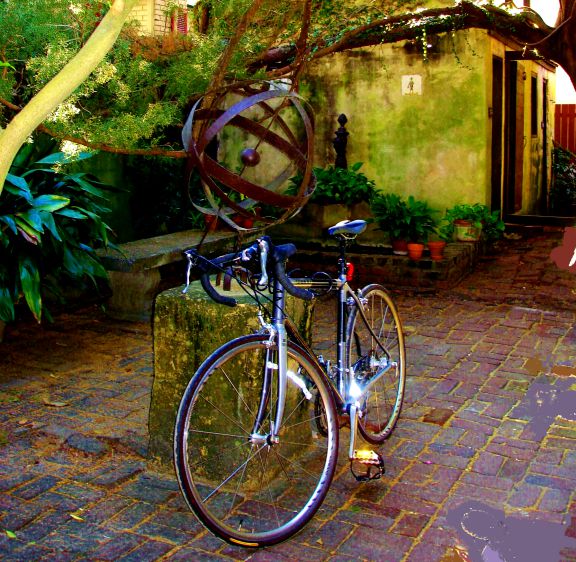
“. . . you have to cherish the world at the same time that you struggle to endure it.”
—Flannery O’Conner
Photo: Deborah Fagan Carpenter